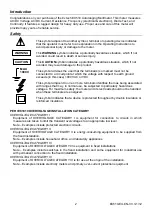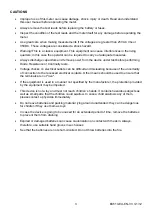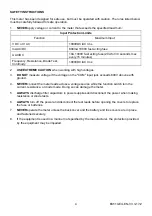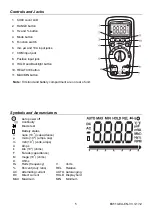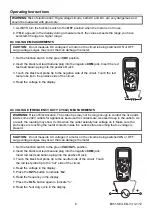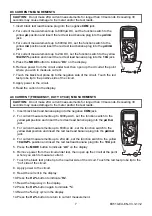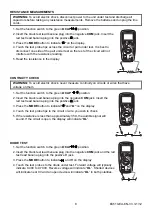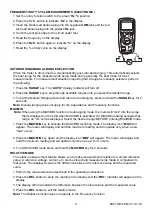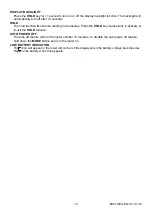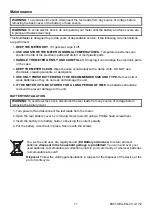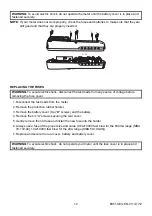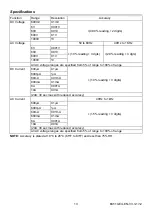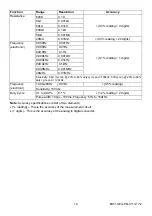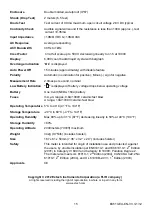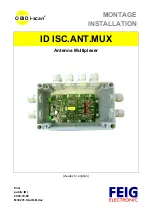
EX510-EU-EN-V3.3-1/12
7
DC CURRENT MEASUREMENTS
CAUTION:
Do not make 20A current measurements for longer than 30 seconds. Exceeding 30
seconds may cause damage to the meter and/or the test leads.
1. Insert black test lead banana plug into the negative
COM
jack.
2. For current measurements up to 6000µA DC, set the function switch to the
yellow
µA
position and insert the red test lead banana plug into the
µA/mA
jack.
3. For current measurements up to 600mA DC, set the function switch to the
yellow
mA
position and insert the red test lead banana plug into the
µA/mA
jack.
4. For current measurements up to 20A DC, set the function switch to the yellow
10A/HZ/%
position and insert the red test lead banana plug into the
10A
jack.
5. Press the
MODE
button to indicate “
DC
” on the display.
6. Remove power from the circuit under test, then open up the circuit at the point
where you wish to measure current.
7. Touch the black test probe tip to the negative side of the circuit. Touch the red
test probe tip to the positive side of the circuit.
8. Apply power to the circuit.
9. Read the current in the display.
AC CURRENT (FREQUENCY, DUTY CYCLE) MEASUREMENTS
CAUTION:
Do not make 20A current measurements for longer than 30 seconds. Exceeding 30
seconds may cause damage to the meter and/or the test leads.
1. Insert black test lead banana plug into the negative
COM
jack.
2. For current measurements up to 6000µA AC, set the function switch to the
yellow
µA
position and insert the red test lead banana plug into the
µA/mA
jack.
3. For current measurements up to 600mA AC, set the function switch to the
yellow
mA
position and insert the red test lead banana plug into the
µA/mA
jack.
4. For current measurements up to 20A AC, set the function switch to the yellow
10A/HZ/%
position and insert the red test lead banana plug into the
10A
jack.
5. Press the
MODE
button to indicate “
AC
” on the display.
6. Remove power from the circuit under test, then open up the circuit at the point
where you wish to measure current.
7. Touch the black test probe tip to the neutral side of the circuit. Touch the red test probe tip to the
“hot” side of the circuit.
8. Apply power to the circuit.
9. Read the current in the display.
10. Press the
Hz/%
button to indicate “
Hz
”.
11. Read the frequency in the display.
12. Press the
Hz/%
button again to indicate “
%
”.
13. Read the
%
duty cycle in the display.
14. Press the
Hz/%
button to return to current measurement.


